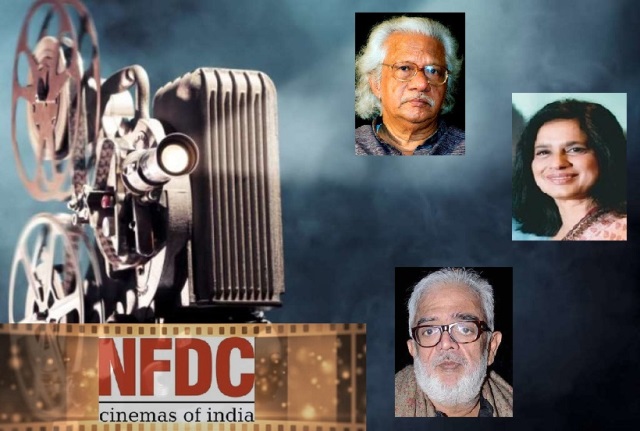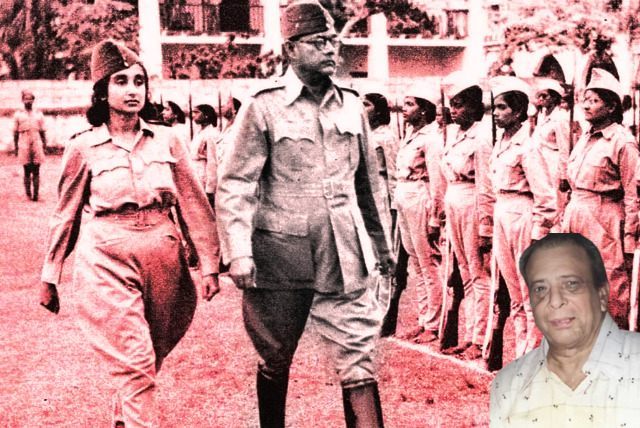
NFDC – National Film Development Canned
When the government wants to do something to fulfil its hidden objectives in the name of restructuring art and cultural institutions chances are that will not find favour with the cognoscenti. A much used ploy in such circumstances is to appoint a committee manned by people ready to oblige the powers that be and then readily accept its recommendations. This has happened once again preparing the ground for bringing as many as four institutions doing distinctly different work under the National Film Development Corporation (NFDC).
The process of creating a leviathan out of a moribund NFDC where the government appointed managing director would instead of going by board decisions take direction from the Information & Broadcasting minister and secretary has been set in motion. This NFDC culture of the MD going over the board to the minister, however, is not a recent development. Celebrated film maker Adoor Gopalakrishnan, whose work has received many laurels abroad and great appreciation here, is shocked by the recommendation of the Bimal Julka committee (BJC) that will mean the end of any kind of independence of Films Division (FD), National Film Archives of India (NFAI), Directorate of Film Festivals (DFF) and Children’s Film Society of India (CFSI) as these are sought to be made verticals of NFDC.
Gopalakrishnan gives us a rundown of how NFDC was formed with “high hopes and expectations” based on a recommendation of Dr Shivaram Karanth committee, also called the Film Study Group with members including Mrinal Sen, Shyam Benegal, BR Chopra and Gopalakrishnan himself. He writes in The Times of India: “The Corporation was formed with some of us as members on its first board of directors. We had an MD appointed by the government who would rather take orders from the minister directly than execute the decisions of the board. In effect, the board and the executive (MD) were constantly at loggerheads.” And the MD had impudence to prevail upon the then I&B minister to tell “us to cooperate with her.”
No one in his/her senses will contest Gopalakrishnan argument that the downhill journey of the institution began from the start some four decades ago and during this period more often than not NFDC has worked without a board of directors.
As the government unadvisedly tightened its grip on NFDC, which could only thrive and prosper in an open liberal environment, the institution had lost all its relevance and ceased to be of any value for Indian cinema. Gopalakrishnan is not overstating a bit when he says NFDC has by now “distanced itself from any film business. It now exists for itself.” By way of delivering a coup de grace he says: “It is strange that the government is now planning to saddle it with a heavy load of functions the incumbent is hardly capable of performing even if it is blessed with loads of funds.”
ALSO READ: Is It Curtains For Cinematic Freedom?
While there is no denial that all the four agencies sought to be brought under NFDC are underperforming for a long time, the cure for them is certainly not to leave them to the care of NFDC, which, according to Gopalakrishnan, has “proved its worthlessness beyond any doubt.” When he passes such a strong comment, it is out of frustration that NFDC is not what it could have been had the government not sought to control it through its appointed chief executive. Mercifully, the BJC has not come down in the same way on the Satyajit Ray Film & Television Institute and the Film & Television Institute. For the time being at least, these two are spared the sledgehammer blows of an unthinking committee.
When an institution is sought to be hanged, give it a bad name. That is exactly what BJC has done. BJC report and its acceptance in full by the I&B ministry have great import, not the least because Indians are great cinema loving and each of the four institutions can make major contribution in its respective field provided the right work environment and autonomy are given to them. Strangely, even though the report hasn’t got anything to do with national security, the government is not making it public ignoring the urgings of many. Even the filing under the RTI (right to information) ACT did not oblige the government to show the report to the applicant. No explanation is available as to why the public is to be denied access to the report.
Rahul Rawail, director of some popular Bollywood films overlooked, however, by people hooked onto the works of the kind made by Benegal or Gopalakrishnan here or by Woody Allen or Martin Scorsese in the US, was a member of BJC. He is expectedly too very vocal of the great wisdom that the committee has displayed in proposing that FD, NFAI, DFF and CFSI should be brought under NFDC. Interestingly Rawail himself admits NFDC hasn’t “contributed anything of quality and its workforce was having a ball at the expense of the exchequer.”
That makes one wonder how NFDC then in its present state could bring about redemption of the targeted institutions. Talking about these institutions, Rawail says they in the last ten years “slid into a cesspool of muck due to inefficiency, over-staffing and corruption… The only unit that was devoid of corruption was the DFF though it was suffering due to inefficiency of some employees.”
Gopalakrishnan too confirms the “worthlessness” of NFDC “beyond any doubt.” The point is NFDC itself being in a sorry state, what sense it will make to burden it further with the responsibility to infuse life in four other listless organisations. Or is it, as many suspect, the government objective is to see the end of at least a couple of these institutions under the cover of “streamlining and restructuring?”
Rawail has his agenda to inveigh against the four institutions. But as we know all of them did a good job in the past and at least NFAI continues to work assiduously to restore and preserve old films of class for the posterity. Gopalakrishnan says: “One is at a loss to understand how NFAI, which is the country’s treasure trove of film heritage and culture, can be left to languish under a corporate body like NFDC. It (NFAI) is one institution that has been performing exceedingly well from its inception. Fortunately, for some time now it has been headed by a knowledgeable and dedicated officer.”
Tamper with whatever autonomy NFAI enjoys there will then remain the risk of an “irreparable damage” to the institution. Gopalakrishnan has done well to remind us also of good times for CFSI when Jaya Bachchan, a Rajya Sabha member, was heading it. Instead of giving effect to the BJC recommendation that has the potential to further damaging the institutions if not their withering, the sensible thing will be to find the right leaders for each of the concerned institution and give them the freedom to work, of course under the oversight of the government.
NFDC article makes sad reading. There is no logic in burdening NFDC, which continues to give a poor account of itself with four other problem ridden organisations concerned with cinema. The motive is apparent. As it has done with supposedly autonomous cultural and educational institutions, New Delhi has now turned its attention to Films Division, National Films Archives, Directorate of Film Festivals and Children’s Film Society. Instead of giving effect to Bimal Julka Committee, the government in consultation with people of understanding should appoint chief executives with power and independence for the concerned organisations for their revival.Let’s hope reason will finally prevail.
A faculty member at SRFTI and a former student of Pne FTII says: “The article is a comprehensive assessment of the current government’s view of our art and culture. Mercifully, a couple of institutes – Satyajit Ray Film and Television Institute and Film and Television Institute of India have been spared, at least for the time being.” He cannot announce his identity for obvious reason.



